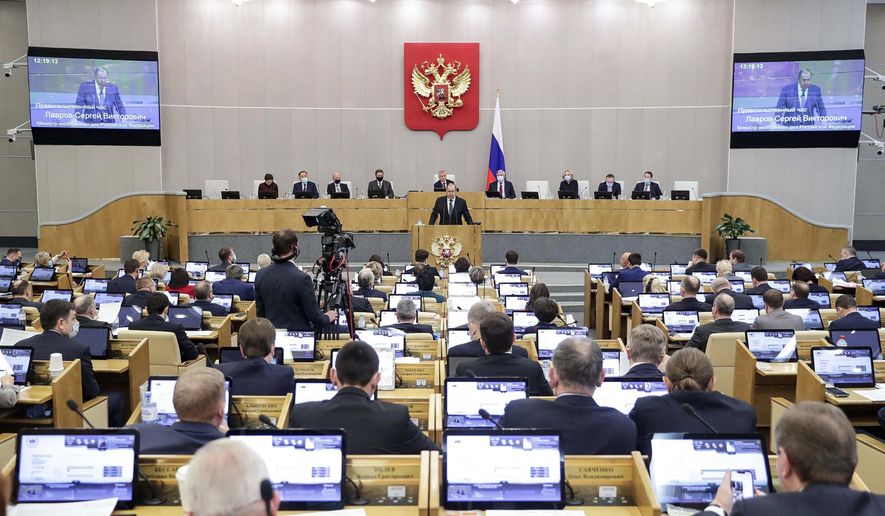The U.S. on Thursday imposed sanctions against more than 300 Russian lawmakers — including most of the country’s parliament, known as the Dumas — marking a significant escalation of punishments on Moscow for the war in Ukraine.
The lawmakers are among 400 individuals and entities sanctioned by the U.S. More than 40 Russian defense companies will also face penalties.
“Our sanctions on Russia are unprecedented — in no other circumstances have we moved so swiftly and in such a coordinated fashion to impose devastating costs on any other country,” the White House said.
The sanctions were imposed in coordination with the European Union and members of the Group of Seven nations.
All told, the U.S. is sanctioning 328 Duma members, plus the Duma as an entity. It has also imposed penalties on Herman Gref, the head of Russia’s largest bank, Sberbank, Russian elite Gennady Timchenko and his family members, and 17 board members of Sovcombank, a Russian financial institution.
Among the Duma members sanctioned Thursday is Maria Butina, who pleaded guilty in 2018 to foreign lobbying crimes for trying to infiltrate conservative circles in the U.S., including the National Rifle Association.
Ms. Butina, the first Russian citizen charged with crimes related to the 2016 election interference, served 15 months in a U.S. prison. She later returned to Russia and got involved in politics, ultimately becoming a member of the Duma.
The U.S. will also slap penalties on 48 large Russian-owned defense companies, which have manufactured weapons used in its war against Ukraine. Helicopters, tactical missiles, and high precision defense systems are among the weapons produced by these companies, according to the White House.
More than 600 Russian individuals and businesses have been targeted with sanctions since the war began, the White House said.
So far, sanctions have failed to deter Russian President Vladimir Putin from continuing his military onslaught against Ukraine. Sanctions have been imposed on Mr. Putin himself along with scores of Russian oligarchs, government officials, and financial institutions.
The Russian Federal Assembly consists of the 450-seat State Duma and a 170-seat upper chamber. It has expanded its power in recent years but still has less influence than the Russian president. The Duma also serves as a connection between the government and the Russian people, distributing government funds and relaying citizen concerns.
The Duma last month passed an appeal to Mr. Putin to recognize the Russian-controlled separatist states of Donetsk and Luhansk, which occurred just before the attack on Ukraine.
Earlier this month, the Duma approved a law criminalizing what it said is “false news” about Russia’s military campaigns in Ukraine. The bill included a prison sentence of up to 15 years.
• Jeff Mordock can be reached at jmordock@washingtontimes.com.




Please read our comment policy before commenting.